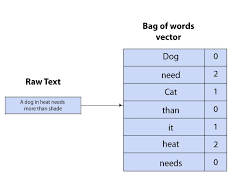Machine Learning (ML) falls into three main categories: Supervised Learning, Unsupervised Learning, and Reinforcement Learning. Let’s dive into some issues and considerations that might leave you wondering if it’s even worth starting!
Not embracing what Professor Stuart Russell called “the biggest event in human history” may be short-sighted. Don’t worry, Salesforce can help.
Salesforce and Machine Learning
Salesforce has a 20-year history of making complex technologies business-friendly. This extends to Machine Learning, integrating ML capabilities throughout the Salesforce Customer 360 suite, which includes solutions for Marketing, Commerce, Sales, Service, and Analytics, among others.
Machine Learning in Action with Salesforce
Marketing
Imagine you’re in a marketing role. You want to predict the likelihood that a customer will engage with your campaigns to maximize effectiveness. Supervised Learning can help here by predicting subscriber engagement (opens, click-throughs, conversions) using historical data (90 days of engagement metrics).
For example, using predictive Engagement Scoring, a Salesforce customer in the travel industry achieved a 66% drop in unsubscribe rates and a 13% revenue increase.
You also want to ensure prospective customers can quickly find relevant products. Unsupervised Learning can personalize product assortments throughout the shopper journey by analyzing buying patterns, site browsing tendencies, and relationships between search terms and products.
Using AI-powered Predictive Sort, businesses have seen a 9.1% increase in revenue per visitor and a 3.8% increase in conversion rates.
Sales
For sales teams handling many opportunities, predicting the quality of each Opportunity can help prioritize efforts. Supervised Learning, using historical data of at least 200 Closed/Won and 200 Closed/Lost Opportunities, can provide a prioritized list of Opportunities to maximize revenue potential.
A large Salesforce customer in the consumer goods sector increased win rates by 48% by focusing on the best Opportunities.
Service
Post-sale customer support is crucial. Service agents need to address challenging cases efficiently. Supervised Learning can recommend articles to resolve current cases based on historical data from at least 1000 cases with knowledge base articles.
A large electronics company using Salesforce AI-powered solutions saved 5 hours per agent per week, enhancing productivity.
Simplifying Complex Technology
Salesforce’s rich history of making complex technology accessible allows businesses to realize ML benefits without needing specialized knowledge.
Traditional ML involves multiple steps like data collection, transformation, sampling, feature selection, model selection, score calibration, and integrating results. Salesforce simplifies this with a customizable data model, automated feature engineering, and automatic model building and selection.
For example, in model selection, Salesforce runs a “model tournament” to choose the best model with varying hyper-parameters, ensuring the most accurate model is selected without requiring user intervention.
Conclusion
Salesforce abstracts the complexity of ML behind user-friendly interfaces, making it easier for businesses to leverage powerful technology. Whether it’s predicting customer engagement, personalizing shopping experiences, prioritizing sales opportunities, or enhancing customer support, Salesforce’s ML capabilities can drive significant business value. Discover more about how Salesforce can transform your approach to Machine Learning and help you achieve your business goals.













